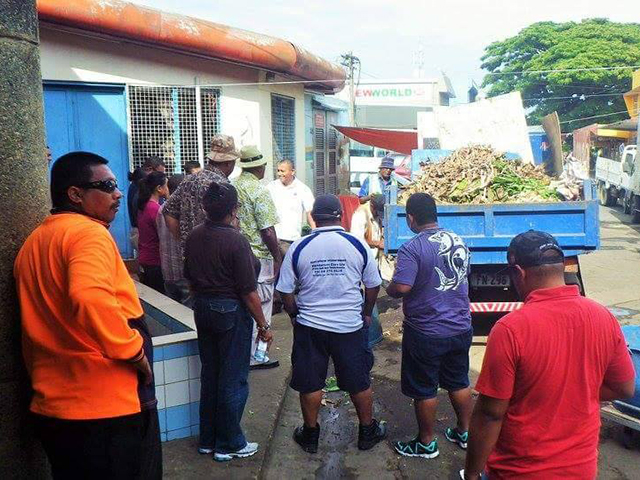
In Suva last week, representatives from 12 Pacific island countries graduated from a two week train the trainers programme which provided specialist instruction on solid and hazardous waste management.
The training programme is part of a four year initiative, funded through the Agence Française de Développement (AFD) Regional Solid Waste Management Initiative, and the GEF Pacific POPs Release Reduction Project, to ensure the sustainable capacity building of semi-skilled waste workers in the Pacific.
Since its commencement in 2013, more than 60 individuals from 13 different countries have been trained in best practice landfill management and hazardous waste handling techniques. The training programme also teaches participants vital presentation and communication skills so they can effectively pass on useful information and skills to their colleagues.

The regional training programme is coordinated through the Global Environment Facility – Pacific Alliance for Sustainability (GEF-PAS) Pacific POPs Release Reduction project and is hosted by the Fiji National University (FNU) School of Medicine, with delivery assistance provided by Australia's Griffith University.
Ms Lusiana Ralogaivau, GEF uPOPs Project Coordinator at the Secretariat of the Pacific Regional Environment Programme (SPREP) explains that the successful training programme has come together with the help of many partners including FNU, AFD, SPREP, Griffith University, United Nations Environment Programme (UNEP) and the Japan International Cooperation Agency (JICA):
"A great deal of support has been provided to this initiative, and thanks to this guidance we are pleased to advise that the programme is being upgraded to an accredited course for both practitioners and policy implementers in the waste management sector. This will ensure a sustainable pathway for continued professional development in waste management for the region."
The Pacific POPs Release Reduction project is co-funded through the Global Environment Facility - Pacific Alliance for Sustainability (GEF-PAS) and Agence Française de Développement (AFD). It is executed by SPREP, and implemented by the United Nations Environment Programme (UNEP) and the Food and Agriculture Organization (FAO).